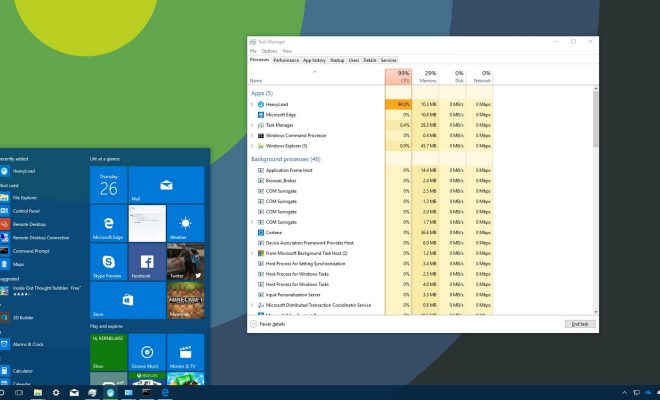Windows Task Manager Processes You Should Never Kill

As an ordinary computer user or tech-savvy person, you might have encountered issues with your system’s performance or functionality. In response to this, you might have opened the Windows Task Manager to identify processes and applications that are running. While the Task Manager offers a considerable suite of utilities, it also presents users with the option to terminate processes manually.
Although the option to terminate processes may seem helpful in managing system resources or fixing issues, it is important to exercise caution when using this feature. As a general rule, Windows Task Manager Processes You Should Never Kill include system processes, security processes, and essential applications.
System Processes
System processes are critical to the proper functioning of your Windows operating system. Hence, it is essential to avoid terminating these processes as they can cause your system to malfunction. Examples of system processes that you should never kill include System Interrupts, System Idle Process, and Local Session Manager.
System Interrupts and System Idle Processes are responsible for resource allocation in the system. They manage the distribution of CPU time for all running applications and system processes, thereby ensuring optimum performance. Local Session Manager, on the other hand, controls the terminal services and Remote Desktop Services in Windows.
Security Processes
Security processes provide essential protection for your system by detecting and removing malware and other malicious threats. Killing these processes can leave your system vulnerable to attacks and viruses. Examples of security processes that you should never kill include Windows Defender Antivirus Service, Security Center, and Windows Management Instrumentation.
Windows Defender Antivirus is responsible for detecting and removing malware on your system, while Security Center provides a centralized interface for managing security settings on your system. Windows Management Instrumentation, on the other hand, is responsible for monitoring system performance and hardware resources.
Essential Applications
Essential applications are those that are critical to the functioning of your Windows operating system. Killing these processes can result in system instability and crashes. Examples of essential applications that you should never kill include explorer.exe, dwm.exe, and taskhost.exe.
explorer.exe is the file manager for Windows that enables users to access files and folders on their system. dwm.exe is responsible for rendering visual elements such as the taskbar, desktop, and window management. Lastly, taskhost.exe manages background tasks and services for Windows applications.
Conclusion
In conclusion, the Windows Task Manager Processes You Should Never Kill include system processes, security processes, and essential applications. Killing these processes can result in system instability, crashes, and leave your system vulnerable to attacks and viruses. As such, it is essential to exercise caution when using Task Manager to terminate processes and only end those that you are sure are not critical to the proper functioning of your system.






